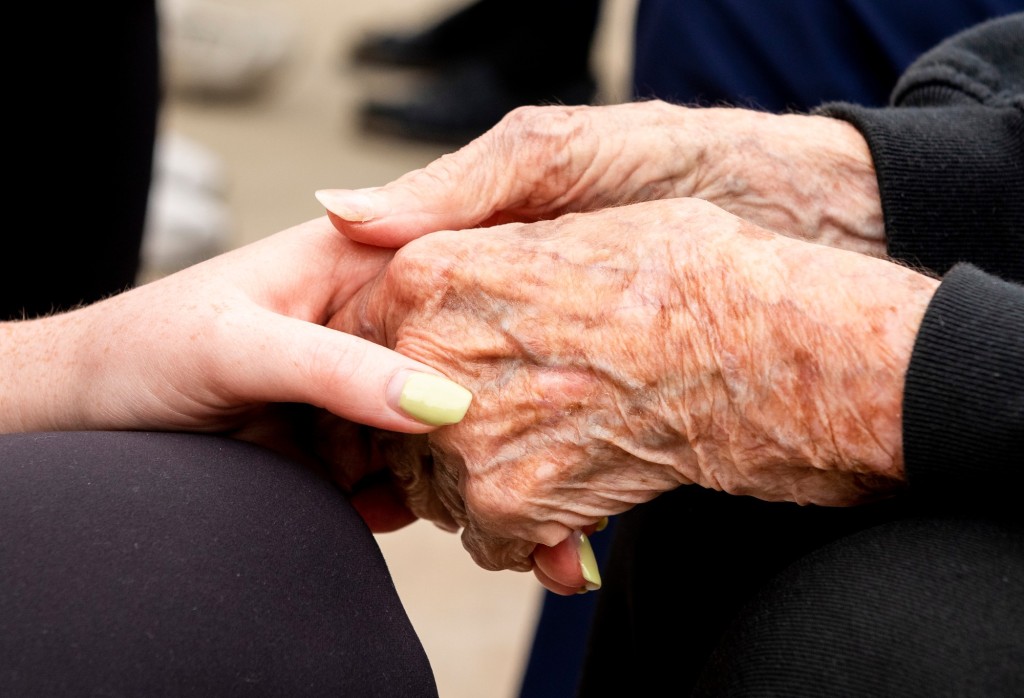By Fred Clasen-Kelly,
Kaiser Health News
Jimmy Dee Stout was serving time on drug charges when he got grim news early last year.
Doctors told Stout, now 62, the sharp pain and congestion in his chest were caused by stage 4 lung cancer, a terminal condition.
“I’m holding on, but I would like to die at home,” he told the courts in a September request for compassionate release after serving about half of his nearly 15-year sentence.
A federal compassionate release law allows imprisoned people to be freed early for “extraordinary and compelling reasons,” such as terminal illness or old age.
Stout was worried about remaining incarcerated because COVID-19 had swept through prisons nationwide; he feared catching it would speed his death. He was bedridden most days and used a wheelchair because he was unable to walk.
But his request — to die surrounded by loved ones, including two daughters he raised as a single father — faced long odds.
More than four years ago, former President Donald Trump signed the First Step Act, a bipartisan bill meant to help free people in federal prisons who are terminally ill or aging and who pose little or no threat to public safety. Supporters predicted the law would save taxpayers money and reverse decades of tough-on-crime policies that drove incarceration rates in the U.S. to among the highest in the world.
But data from the U.S. Sentencing Commission shows judges rejected more than 80% of compassionate release requests filed from October 2019 to September 2022.
Judges made rulings without guidance from the sentencing commission, an independent agency that develops sentencing policies for the courts. The commission was delayed for more than three years because Congress did not confirm Trump’s nominees and President Joe Biden’s appointees were not confirmed until August.
As a result, the law has been applied unevenly across the country, said academic researchers, attorneys and advocates for prison reform.
Late last…
Read the full article here







